Change is hard. Transition stress is real. How we choose to deal with change is how we choose to live our lives. Change happens, and ignoring it shelters you from opportunities for unique, eye-opening and transformative situations.
Over the past three years, I’ve been lucky enough to instruct various student populations, from young people to educators. As Instructors, we spend ample time planning our courses to help transitions on a course be smooth, predictable and hopefully powerful. But we also recognize what Roman philosopher Seneca once said, “The whole future lies in uncertainty: live immediately.” Outward Bound helps you learn how to adapt to change—the good, the bad and the unexpected.

Photo by Rachel Veale
Transition stress happens to all of us, not just on a wilderness expedition. However, an expedition is a great place to practice coping with it. We help our students navigate these tough and meaningful times. Here are some of my favorite tips that can help you exist in harmony with stress in your daily life. Think about these six tips and how you may incorporate them into your working or personal life.
1. Create a Routine
In the wilderness, you adapt to a routine. Upon leaving, you reflect on the routine you’re familiar with at home. We talk about self-care and highlight the importance of self-compassion. That is why routines are important, and with the uncertainty that the wilderness promises, consistency in the things we can control is essential to feeling in control and grounded. We create a routine for students that support and align with several factors: the students’ age and motivation, their wants and desires and the overall goals for the group. Students gain autonomy quicker when there’s a routine they can easily learn and follow.
When students are entering a transitional phase of course, like the final days of an expedition, we talk about what they will take back home. Often, students identify how helpful the routine was for their success. A routine helps manage their time, and it provides them with a sense of purpose and order. In any transition you may be facing, understand that a routine will help you ease into living in the moment and appreciate it for what it is.
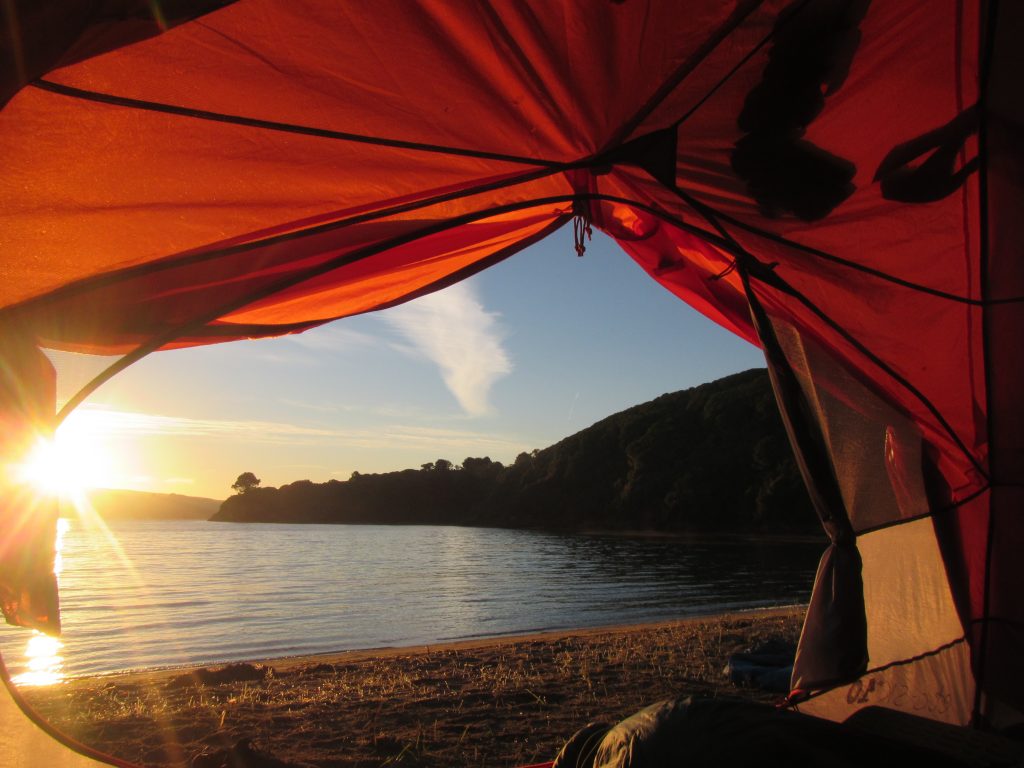
2. Be Transparent
We’ve established that plans change, and it’s how we adapt and react that matters. When things don’t go as planned in the wilderness (and like life, they never do), we’re fully transparent with our students about what’s happening and what we’re doing about it. The most important part of the change is why we’re doing what we’re doing. An obvious example in change of plans, and one that is out of our control, is adapting to weather. We can’t rock climb if thunder is rolling in, and when that happens, students understand the priority of safety. We’ll try and reschedule, or we’ll make do with what we have—learning how to dance in the rain.
Another factor that affects change in plans are student behaviors (motivational levels, decision-making skills, etc.) This is when Instructors make deliberate, in-the-moment plans we feel will meet our students where they’re at. Presenting that information to them also takes intentional planning. When we present the changes to our students, we provide them with the whys. It’s never “because I said so” or “because we’re in charge” because it doesn’t make students feel respected as capable individuals.
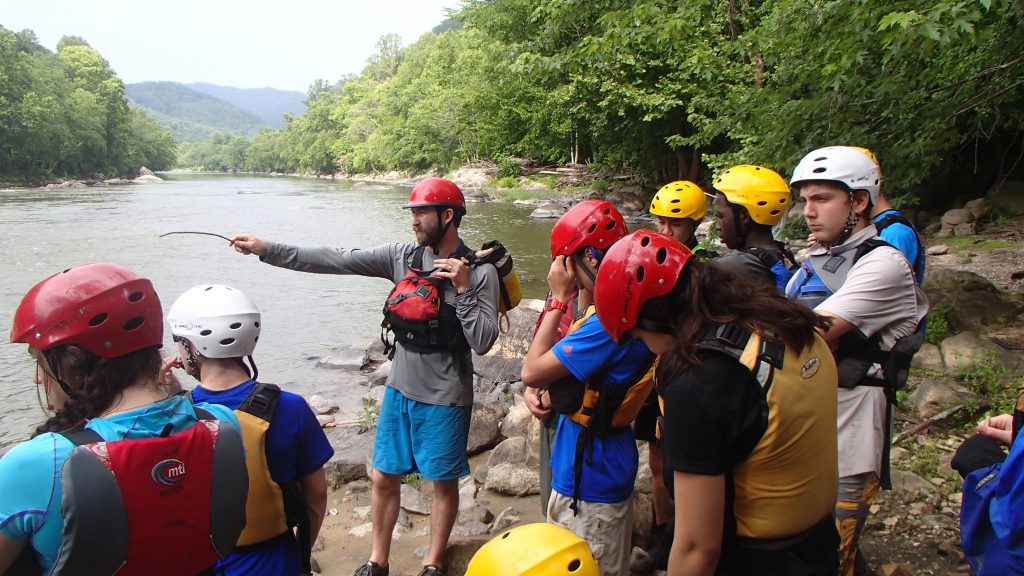
3. Slow Down
Reflection is a part of our daily routine in the wilderness. Students take the time to sit and think about their day, intentions and goals, and they get the chance to reset. That time is crucial to remind them why they’re there and what it can teach them.
On a recent course, I was working with educators—an eccentric, passionate group of individuals whose career goals were to better the lives of their students and communities. I remember sitting with them after a tough and long couple days of hiking. They had reached their destination, and sat down to rest and drink some water. Naturally, there were quiet, and I sensed a deep exhaustion and appreciation for the experience they just had among them. They started to talk about it—the stress they were feeling was the start of it all. They shared lessons learned, took ownership for some of the choices they made and how they had reacted to change. They had all experienced stress in some form or another. For some older folks, it was a physical challenge, and for those who were afraid of heights, rock climbing was especially stressful. But throughout the conversation, one thing was certain; they overcame it, and felt they were better because of it. My co-Instructor reminded the crew that if they were to have a cloud of stress lingering over them again, “Slow down.” Just noticing what’s happening and how you’re reacting can make a world of a difference, and can help you befriend stress instead of despise it.
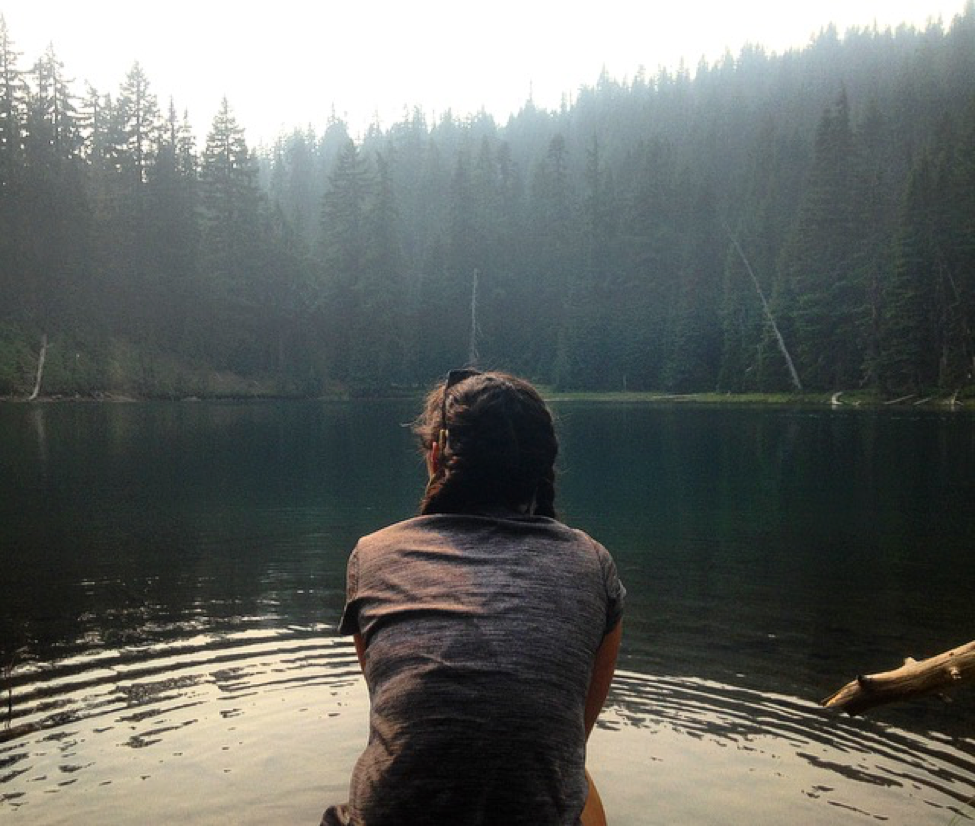
A moment of reflection at an alpine lake in the Mount Jefferson Wilderness, Oregon. Photo by Devin Shunk.
When you feel stressed, do you often speed up or slow down? Personally, I find myself stimulated to move about and instead of focusing my energy on one thing, I try to distract myself with a never-ending to-do list. Remember it’s important to take time to slow down and reflect on your situation.
4. Play More
Our confidence in taking risks is dependent on our capability to play. Stress is societally associated with negativity. To flip that on its head, we need to learn how to live with stress and recognize the positive and powerful potential it can have on us. Fear can stand in our way to go after what we want. We can care about something or someone so much that we naturally push away from it because we risk losing it.
As we grow older, play becomes less of a priority. But why? How liberating does it feel to laugh, and how much closer do we grow to those around us when we do? Recreating and playing are fundamental in shifting stress and our perspective. Choosing to engage in something creative, active and/or playful will make you feel carefree and doing it enough will be a positive addition to your routine.
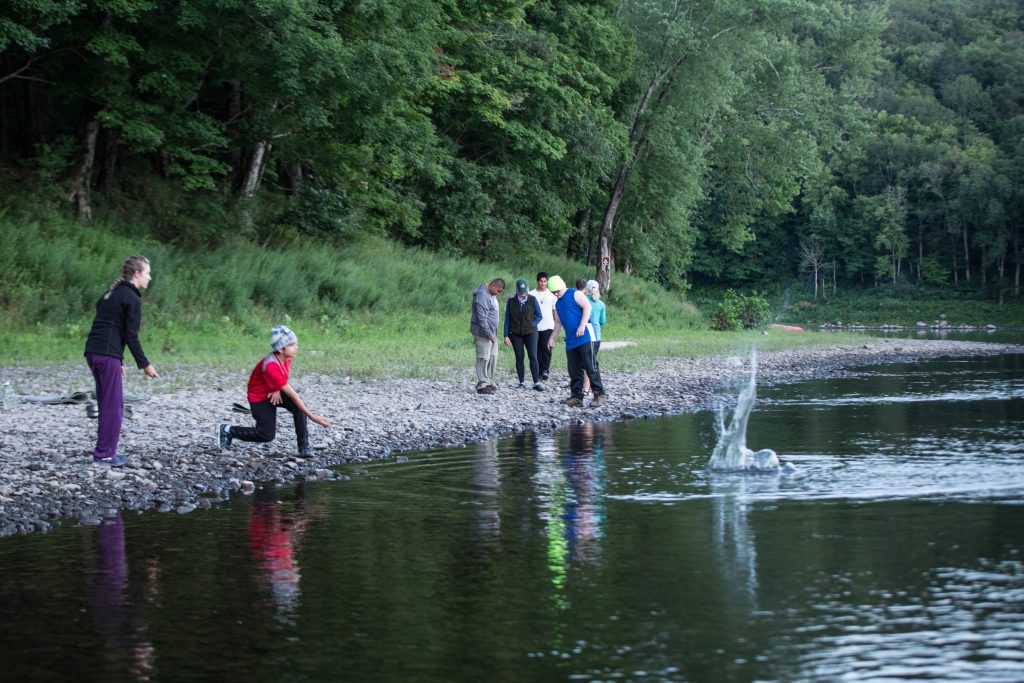
Photo by Ryan Harris
5. Front-load Information
The first few days of a course are jam-packed with new information. From learning new names, to learning how to set up camp properly, it can be stressful. You’re diving head first into a new environment. Instructors front-load pertinent information to help our students understand what’s to come in the next hours or days—whatever is relevant at that time. I’ve seen this relieve some stress because students feel heard and taken care of. By taking the time to explain, and taking even more time to ensure students understand all of the information, we set ourselves up for success. Interpersonal and technical skills are taught and retained. Whatever the weather, students are prepared to face it.
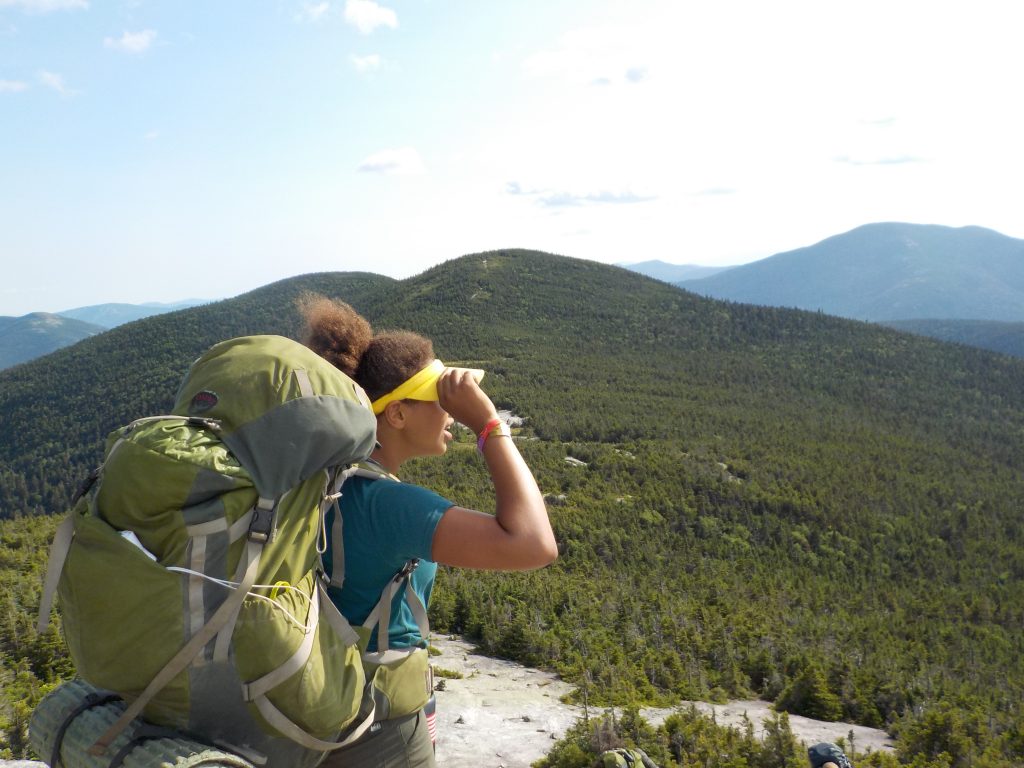
6. Be Vulnerable
“Why are you stressed about going home?” I once asked a group of teenagers on a course. Their behaviors collectively were producing winds of anxiety that even the water we were paddling on could feel. It was our last night on the river, and the boys were aware of it, but none expressed truly how that made them feel. We decided we better stop and help them get to the bottom of it so we could enjoy the sunset together one last time. We knew it’d push our night back later than we wanted, but we also knew that it was more important for them to be honest with how the anticipating feelings of leaving were affecting their behavior. After some unsettling silence and avoidance, one boy was courageous enough to break the ice. “I’m afraid my parents won’t be happy to have me home.” Another then said, “I’m afraid I won’t actually change.” One by one, they opened up and expressed both their apprehensions and hopes for returning home. I was in awe of their courage and acceptance that it wouldn’t be easy returning home and their realization that none of their course experience really was. They had worked relentlessly for 20 days through conflicts, late nights and rain, and it was almost over.
Their vulnerability in that moment had done a few things. For one, as Instructors, we gained a whole canoe worth more of patience for them. The sun was going down and I was tired, but I had the compassion and patience to push through it. Upon their shared feelings of doubts and hopes, they realized they weren’t alone. And that helped them feel more relaxed and fully able to enjoy each other’s company. They paddled the rest of the way through scattered laughter and more intimate conversations about what going home would be like. It also helped us better understand our students and what they were thinking.
Being vulnerable is not a constant state of being, but if practiced and also met with an open heart and mind from others, we can welcome it like stress. A friend, an inevitable part of who we are, stress and vulnerability go hand-in-hand.
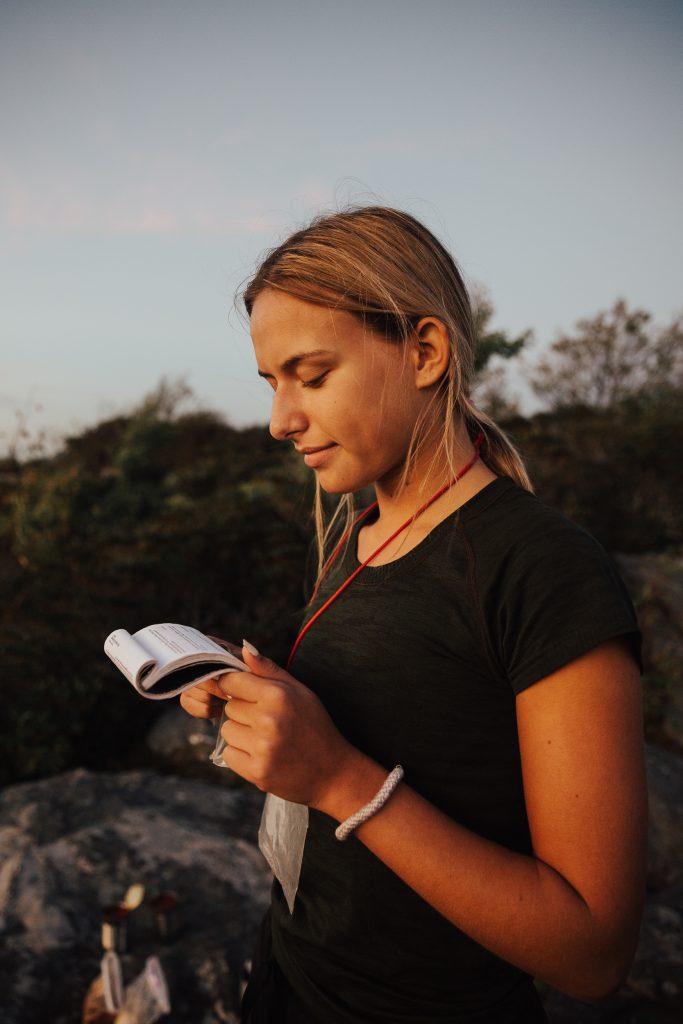
Photos by Rachel Veale
Is stress all bad? It’s actually good for you. It’s healthy and necessary to go after your aspirations in life, with good intentions and good people by your side. Dr. Kelly McGonigal, a health psychologist, wrote an eye-opening book, The Upside of Stress: Why Stress is Good for You (and how to get good at it), about our relationship to stress. She mentions in her introduction—and later shares the data to back it up—that, “The latest science reveals that stress can make you smarter, stronger and more successful. It helps you learn and grow. It can even inspire courage and compassion.” That’s what we hope for our students when they’re in those states of transition—that it will guide them to be more thoughtful, self-aware and courageous leaders as they return home.
Stress is experienced in various aspects of our day-to-day lives. We get stressed from work, relationships, failures, and even successes. What I find so interesting is that my students feel stress, across the board, in states of transition. I myself experience it too. This job is stressful, but it’s the best job I will ever have. Saying hello and goodbye to strangers turned family, time and time again, is hard. But I’m grateful that I care so much about something that it’s hard to say goodbye to; it reminds me how unique and memorable our shared experience is. We can’t change what is presented to us, but we can control how we respond. In doing so, you can learn to accept everything as is. On and off a course, as an Instructor and as a person existing in this world, I try my best to front-load information (and ask for it when I don’t know), be transparent with my colleagues and friends, slow down, set and follow a routine, play as hard as I work and be vulnerable.
I like what Dr. McGonigal says, “A meaningful life is a stressful life.” And as you think about that mentality, I encourage you to remind yourself that any transition—whether you deem it good or bad—is teaching you something, and that is always meaningful.
About the Author
Blaine Weiss is an outdoor Instructor who works primarily with the FINS and Intercept programs of the North Carolina Outward Bound School. With a background in film and writing, she seizes the opportunity to fuse her interests in the creative arts with her love of the outdoors.




